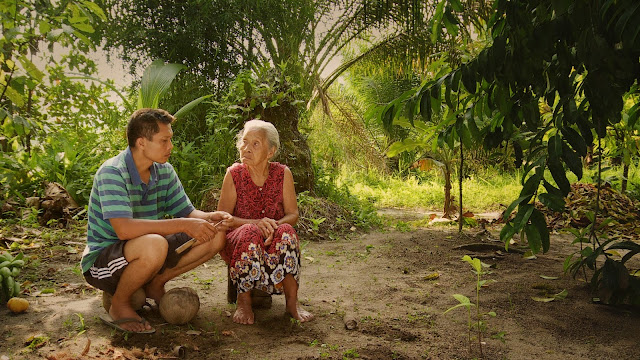theSun got Joshua Oppenheimer to talk about his documentary The
Look of Silence that is being nominated for an Oscar for Best Documentary
feature. Here is the full interview
Headline: A Festering Wound
By Bissme S
Director Joshua Oppenheimer and his team opened the world’s
eyes to the genocide that took place in Indonesia from 1965 to 1966 in their
2013 landmark Academy Award-nominated The Act of Killing. The documentary
highlighted the large-scale killings in Indonesia that targeted communists,
ethnic Chinese, and alleged leftists. It is estimated that 500,000 people were
killed. The purge was a pivotal event in the elimination of the Indonesian
Communist Party (PKI) as a political force, the downfall of then-president
Sukarno, and the rise of Suharto as the second president of Indonesia.
Oppenheimer and his team have since followed up that story
with a second documentary The Look of Silence, which showed what it is like for
those who survived the genocide. The Look of Silence has already won awards at
international film festivals in Berlin and Venice, and has given the director
his second Academy Award nomination for best documentary feature.
This documentary focuses on Adi Rukun an optometrist who was
born after the genocide. Yet, he is haunted by the fact that his brother Ramli
was murdered during the brutal event. His mother cannot come to terms with Ramli’s
death. What makes her pain unbearable is that the men who carried out the
killing are still free.
With the help of Oppenheimer and his team, Adi is able to
confront the men who killed his brother. He had hoped to see some regret and
remorse in their eyes. Instead, most of them try to justify their actions. The
Look of Silence is a compelling, intense and heartbreaking documentary of the
pain that still festers in the heart of those left behind.
The scene where a mother laments her son’s death, and hopes
that the killers and their descendants will lead horrible lives is
heart-rending. Another touching scene is when a daughter of the one of the
killers pleads with Adi to forgive her old and sick father, and to let bygones
be bygones.
This is indeed a well-made documentary that deserved its
Oscar nomination. In an interview with theSun, Oppenheimer says: “It is
incredibly humbling to be nominated, again. We could not have made this film
without our anonymous Indonesian crew, and our gentle protagonist Adi, who
risked their lives to share their story.
“The genocide began years ago. But it hasn’t ended for the
survivors because the perpetrators are still in power, and millions are still
living in fear. The Look of Silence helped Indonesians express their yearning
for truth, justice, and reconciliation.”
The documentary also features the risks undertaken by the
team and by Adi during the course of filming. In the scenes where Adi confronts
the murderers of his brother at their residence, there is a palpable sense of
danger in the air and fear for Adi’s safety.
“These confrontations could have been dangerous,”
Oppenheimer says, explaining how they had to take many precautions to prevent
any untoward incidents. When he met with the perpetrators, he only brought
along Adi and a small crew.
“Adi would come with no identification card,” he says.
“All of us would empty all the numbers from our handphones
and bring a second car so that [we could switch vehicles] minutes after leaving
their houses, making it harder for the perpetrators to follow us.”
Oppenheimer is thankful that none of the confrontations
ended violently. He feels the reason for that was because of Adi’s patience and
empathy with his brother’s killers, and the fact that the perpetrators were not
quite sure how to react to the confrontation.
“I was aware Adi would not get any apology from them and I
did not hide this fact from him,” Oppenheimer said. “But I told Adi that by
documenting the perpetrators’ inability to apologise, maybe we could show how
torn the social fabric of Indonesia is.”
Oppenheimer believes that if he could film their complex
reactions of fear and guilt at being visited by their victim’s brother, then
perhaps, he could shed a light on how these feelings represent the divide
between Indonesians and their own past, and from each other.
As to the possibility of making feature films, Oppenheimer
has no plans to do so. “Non-fiction filmmaking is my way of working with real
people to create occasions in which the mysteries of being become palpable,” he
says. “Why would I want to give this up?”
 |
| Adi and his mother talking about the past |

No comments:
Post a Comment